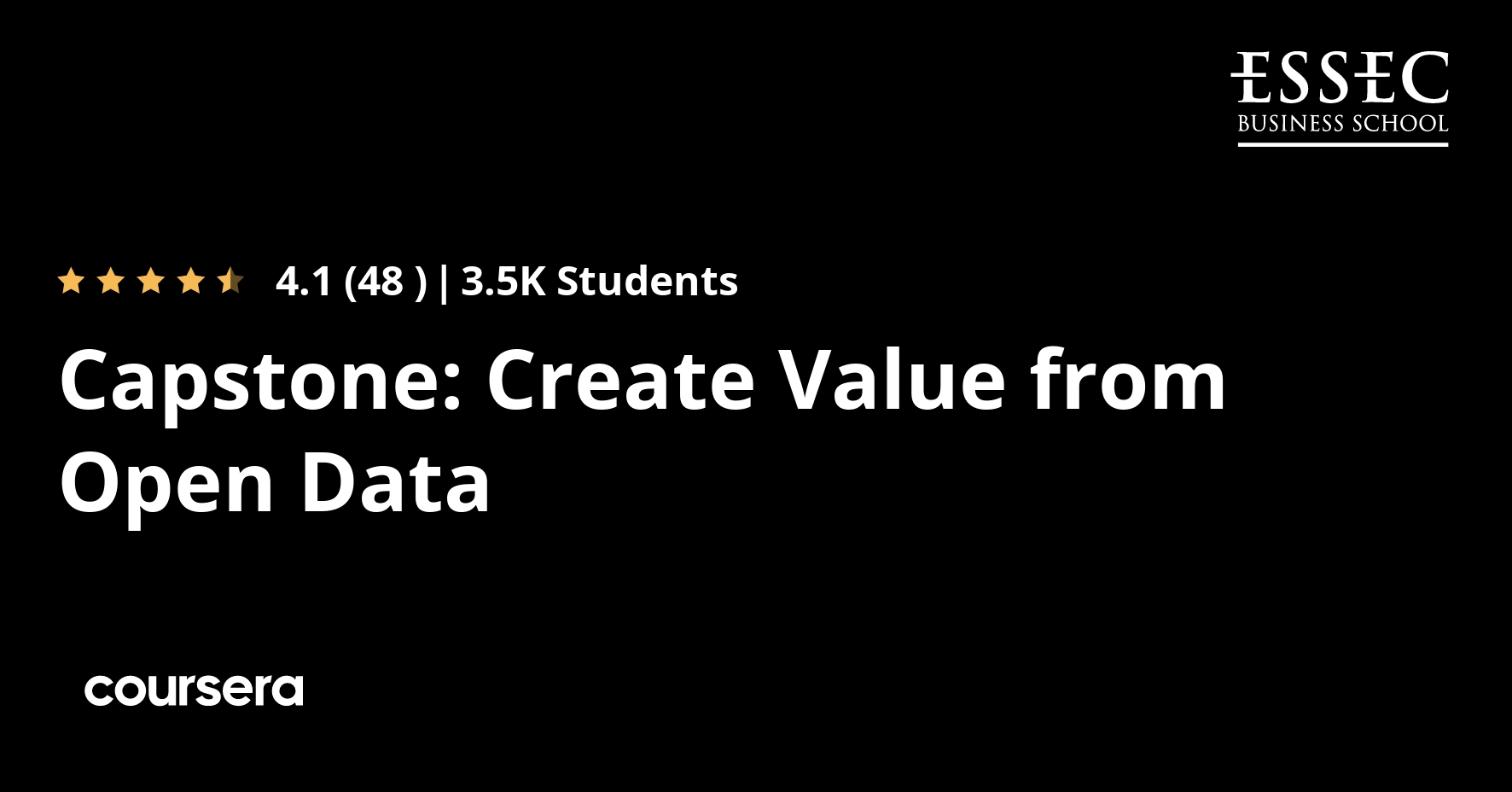Description
The Capstone project is an individual assignment.
Participants decide the theme they want to explore and define the issue they want to solve. Their “playing field” should provide data from various sectors (such as farming and nutrition, culture, economy and employment, Education & Research, International & Europe, Housing, Sustainable, Development & Energies, Health & Social, Society, Territories & Transport). Participants are encouraged to mix the different fields and leverage the existing information with other (properly sourced) open data sets.
Deliverable 1 is the preliminary preparation and problem qualification step. The objectives is to define the what, why & how. What issue do we want to solve? Why does it promise value for public authorities, companies, citizens? How do we want to explore the provided data?
For Deliverable 2, the participant needs to present the intermediary outputs and adjustments to the analysis framework. The objectives is to confirm the how and the relevancy of the first results.
Finally, with Deliverable 3, the participant needs to present the final outputs and the value case. The objective is to confirm the why. Why will it create value for public authorities, companies, and citizens.
Assessment and grading: the participants will present their results to their peers on a regular basis. An evaluation framework will be provided for the participants to assess the quality of each other’s deliverables.
What you will learn
Introduction and step 1 : Define the analysis framework
Module 1 in the Business Analytics capstone project provides you with a clear idea of how to successfully complete the ESSEC Business Analytics MOOC. It is dedicated to ensuring that you understand the objectives of the capstone project and lets you consult the datasets to be used for the project as well as examples of what the expected deliverable should look like and contain. Before beginning the project, you are advised to review two previous modules dealing with how to effectively structure and present your findings, and how to approach and explore datasets (“Foundation of Business Analytics”, the wrap up of “Case Studies in Business Analytics with Accenture”). This module also gives you the opportunity to try out the preparation of deliverable 1 and receive non-graded feedback from your peers, thereby giving you an essential insight into how the other deliverables and peer review steps will work.
Required assignement 1: Define the analysis framework
The module 2 sets the assignment of preparing deliverable 1 – your analysis framework – for assessment by your peers.
Required feed back on Delivery 1:Define the analysis framework and preparation of deliverable 2
In Module 3 you will be involved in reviewing the deliverables of a minimum of 3 other students( if you can manage more than 3, then all the better!) as well as preparing deliverable 2
Practice for Deliverable 2
Module 4 enables you to submit your draft proposal for deliverable 2 to your peers for review and feedback.
Required assignement 2: Present the intermediary outputs and adjustments to the analysis framework
The module 5 sets the assignment of preparing deliverable 2 – Present the intermediary outputs and adjustments to the analysis framework – for assessment by your peers.
Required feedback for delivery 2 and preparation of delivery 3
In Module 6 you will be involved in reviewing the deliverables of a minimum of 3 other students( if you can manage more than 3, then all the better!) as well as preparing deliverable 3




